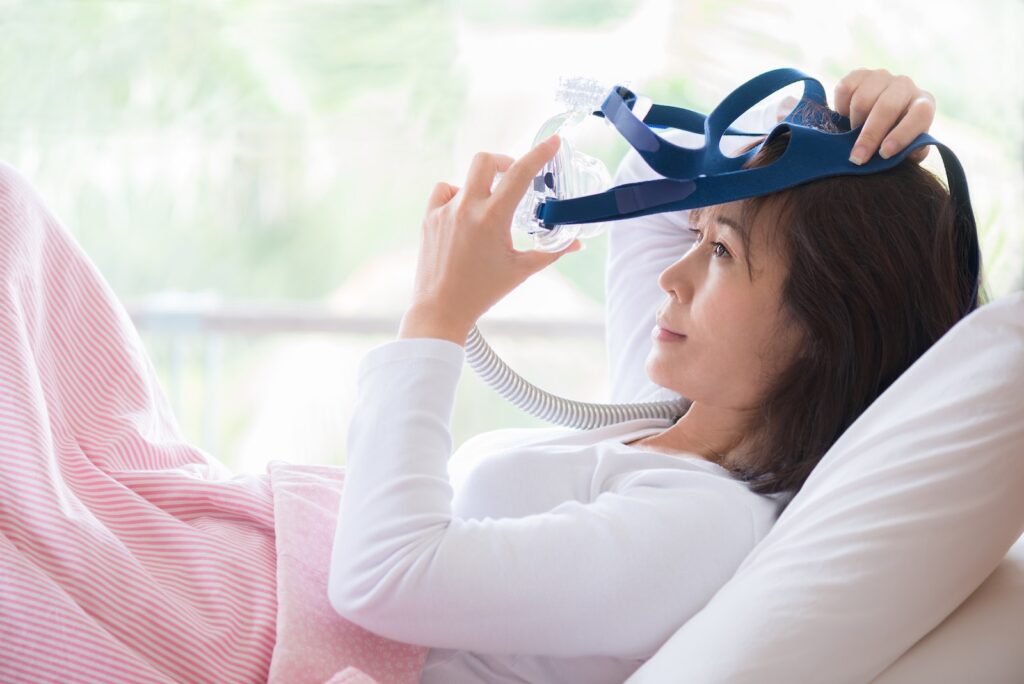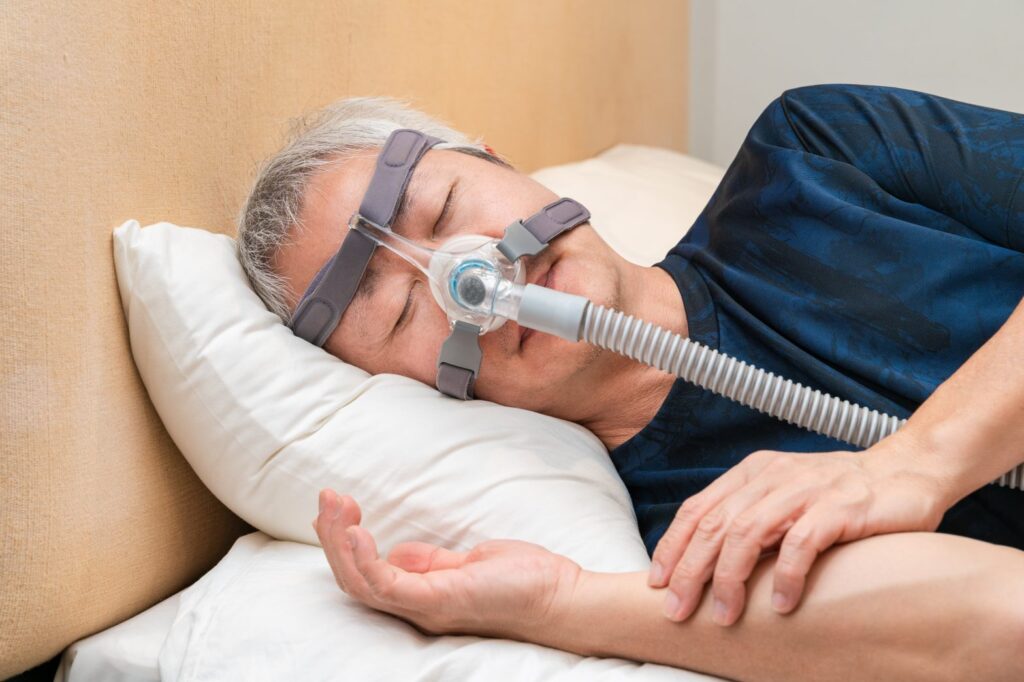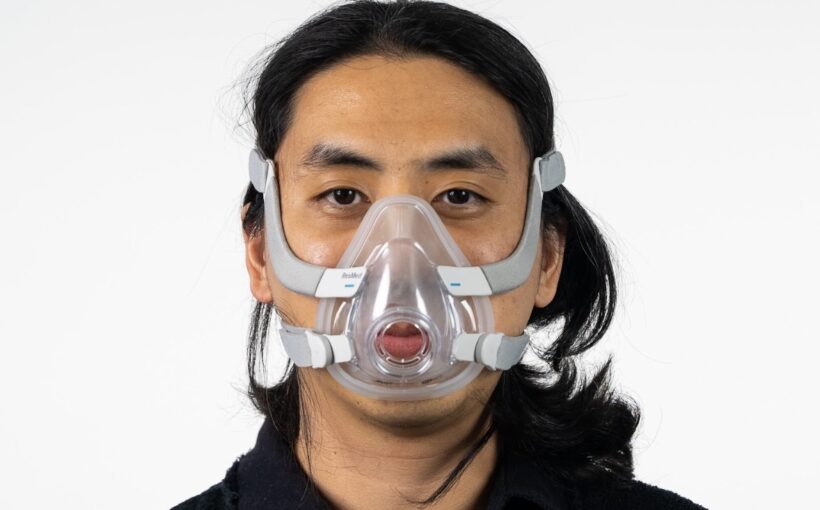Understanding CPAP Therapy
Continuous Positive Airway Pressure (CPAP) therapy is a common treatment for obstructive sleep apnoea, a condition that affects millions of people worldwide. The therapy involves using a machine that delivers a steady stream of air through a mask, keeping the airways open during sleep. This not only improves sleep quality but also reduces the risk of associated health issues such as heart disease and high blood pressure.
For many individuals, the success of CPAP therapy hinges on the proper fit and comfort of the mask. An ill-fitting mask can lead to discomfort, air leaks, and ultimately, a poor night’s sleep. Therefore, understanding the different types of CPAP masks and how to find the right fit is essential for anyone embarking on this treatment journey.
Types of CPAP Masks
There are several types of CPAP masks available, each designed to cater to different preferences and needs. Understanding the various options can help individuals make an informed choice.
Ultimately, investing time and effort into selecting the right CPAP mask can lead to a more restful and rejuvenating sleep, paving the way for better health and well-being.

Nasal Masks
Nasal masks cover the nose and are one of the most popular choices among CPAP users. They are generally lightweight and provide a good seal, making them suitable for those who breathe through their nose during sleep. However, they may not be ideal for individuals who tend to breathe through their mouth, as this can lead to discomfort and air leaks.
Many nasal masks come with adjustable straps to ensure a snug fit, and they are available in various sizes to accommodate different facial structures. Users often appreciate the minimalistic design, which allows for greater freedom of movement during sleep.
Full-Face Masks
Full-face masks cover both the nose and mouth, making them a suitable option for those who breathe through their mouth or have nasal congestion. These masks can provide a more secure fit and are often recommended for individuals with higher pressure settings or those who require additional support.
While full-face masks can be beneficial, they may also feel bulkier and less comfortable for some users. It is essential to find a model that fits well and does not cause irritation or pressure sores on the face.
Nasal Pillow Masks
Nasal pillow masks are a more compact option that consists of two small cushions that fit directly into the nostrils. This design allows for a greater degree of freedom, making them an excellent choice for those who feel claustrophobic in traditional masks. Learn more about nostrils on https://my.clevelandclinic.org/health/body/21778-nose
These masks are generally lightweight and easy to clean, but they may not provide the same level of comfort for individuals who require higher air pressure. Finding the right size is crucial, as an improper fit can lead to discomfort and air leaks.
Factors to Consider When Choosing a CPAP Mask
Choosing the right CPAP mask involves considering several factors that can significantly impact comfort and effectiveness. Understanding these factors can help individuals find a mask that suits their unique needs.
Fit and Comfort
The fit of a CPAP mask is paramount. A mask that is too tight can cause discomfort and pressure sores, while one that is too loose may lead to air leaks. It is advisable to try on different masks and adjust the straps to find the most comfortable fit. Many suppliers offer fitting guides and consultations to assist users in this process.
Additionally, consider the material of the mask. Some masks are made from silicone, while others may use gel or foam. Individuals with sensitive skin should pay particular attention to the materials used, as certain substances may cause irritation or allergic reactions. To read more about allergic click here.
Sleeping Position
Your sleeping position can influence the type of CPAP mask that is most suitable. Side sleepers may benefit from a mask that is less bulky and allows for easier movement, while back sleepers might prefer a full-face mask for added stability. It is essential to consider how you typically sleep when selecting a mask to ensure comfort throughout the night.
Noise Levels
While most modern CPAP machines operate quietly, the noise produced by the mask can still be a concern for some users. Nasal pillow masks tend to be quieter than full-face masks, which may produce more sound due to their larger size. It is advisable to read reviews and consult with healthcare providers to find a mask that operates at an acceptable noise level for your preferences.

How to Achieve the Perfect Fit
Once a mask has been selected, achieving the perfect fit is crucial for effective CPAP therapy. Here are some tips to help ensure a comfortable and secure fit.
Adjusting Straps
Most CPAP masks come with adjustable straps that allow users to customise the fit. It is essential to adjust the straps evenly to avoid creating pressure points. A good rule of thumb is to tighten the straps just enough to create a seal without causing discomfort. Users should be able to slide a finger between the mask and their face without feeling excessive pressure.
Testing for Leaks
After adjusting the mask, it is important to test for air leaks. A simple way to do this is by turning on the CPAP machine and checking for any escaping air. If air is leaking from the sides, further adjustments may be necessary. A well-fitted mask should create a seal that prevents air from escaping, ensuring optimal therapy.
Regular Maintenance
Maintaining the mask is vital for hygiene and longevity. Regular cleaning helps prevent the build-up of bacteria and ensures that the mask remains in good condition. Most manufacturers recommend cleaning the mask daily with mild soap and water, while more thorough cleaning should be performed weekly. Users should also replace their masks as recommended by their healthcare provider, typically every six months to a year, depending on usage.
Common Challenges and Solutions
Even with the right mask, some users may encounter challenges during their CPAP therapy. Understanding these common issues and their solutions can help ensure a more comfortable experience.
Skin Irritation
Skin irritation is a common complaint among CPAP users, often caused by the mask’s material or pressure points. To alleviate this, users can apply a barrier cream or use soft cloths to cushion the mask against the skin. Additionally, experimenting with different mask types may help find one that causes less irritation.
Dryness and Discomfort
Some individuals experience dryness in their nose or throat due to the airflow from the CPAP machine. Using a humidifier in conjunction with the CPAP machine can help alleviate this issue. Many CPAP machines come with built-in humidifiers, but standalone units are also available for those who need additional moisture.
Claustrophobia
Feeling claustrophobic while wearing a CPAP mask is not uncommon. To ease this discomfort, users may consider trying nasal pillow masks, which are less invasive. Gradually acclimatising to the mask by wearing it for short periods during the day can also help individuals become more accustomed to the sensation.
Consulting with Healthcare Professionals
Choosing and fitting a CPAP mask can be a complex process, and consulting with healthcare professionals can provide valuable insights. Sleep specialists and respiratory therapists can offer guidance tailored to individual needs, ensuring that users receive the most effective treatment possible.
Follow-Up Appointments
Regular follow-up appointments are essential for monitoring progress and making necessary adjustments to the therapy. These appointments allow healthcare providers to assess the effectiveness of the CPAP machine and mask, ensuring that users are receiving optimal care.
Support Groups
Joining support groups can also be beneficial for individuals undergoing CPAP therapy. Connecting with others who share similar experiences can provide encouragement and practical tips for managing challenges. Many online forums and local support groups are available, offering a wealth of resources and community support.
Conclusion
Finding the perfect CPAP mask is crucial for ensuring a comfortable night’s sleep and the effectiveness of therapy. By understanding the different types of masks available, considering individual needs, and consulting with healthcare professionals, users can make informed decisions that enhance their overall experience. With the right mask and proper adjustments, CPAP therapy can significantly improve sleep quality and overall health.
Read about cpap machine on: How to Choose the Best CPAP Machine for Your Sleep Apnea Needs

